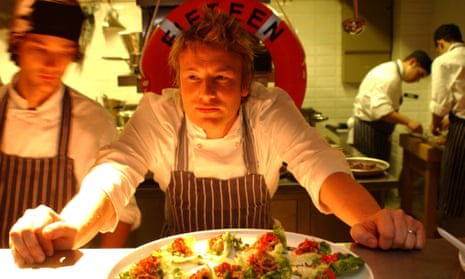More than 1,400 UK restaurants collapsed in the year since June 2018 – underlining the scale of the so-called “casual dining crunch”, which has led to customers turning their backs on chains such as Byron, Strada, Gourmet Burger Kitchen and Jamie Oliver’s restaurant empire.
The number of restaurants falling into insolvency in the year to the end of June 2019 increased by 25% to 1,412 compared to 2018, according to research by the accountancy firm UHY Hacker Young. It is the highest number of insolvencies since at least 2014 and is said to reflect tightened consumer spending on the back of concerns about Brexit and rising costs because of the collapse in the value of the pound.
UHY Hacker Young said the rapid growth of the casual-dining sector since the 2008 financial crisis had resulted in an oversaturated mid-market, which is still going through a dramatic shakeout. The research found that hundreds of small independent restaurants had collapsed as well as big chains such as those owned by the celebrity chef Oliver.
“The crisis in the restaurant sector has been presented as a problem only for the chains that had lost touch with their customers,” Peter Kubik, a partner at UHY Hacker Young, said. “That’s overlooking the hundreds of small independent restaurants that have become insolvent.
“Good restaurants and bad have all struggled from overcapacity, weak consumer spending and surging costs. Having a loyal following is great but if that loyal following stops going out then you have a problem. The number of restaurants whose sales are at or near capacity is pretty small – they’re the exception.”
Experts predict that after the shakeout only restaurants with strong brand loyalty and a differentiated offering will survive.
“For those businesses that are suffering distress, aggressive management of cashflow will be key in the coming months,” Kubik said. “Unfortunately, the sector can’t really expect banks to be as generous with their lending, especially as the sector’s current problems are so well known.”
The research also found that the UK’s top 100 restaurants made a £82m loss in the last year, down from a pre-tax profit of £102m 12 months earlier.
